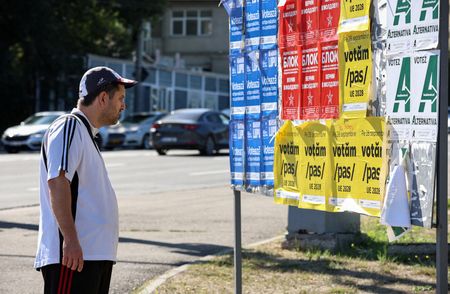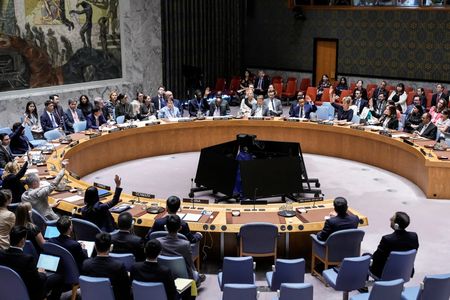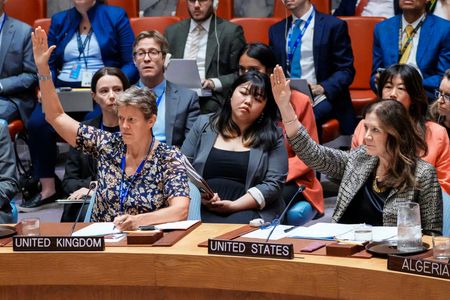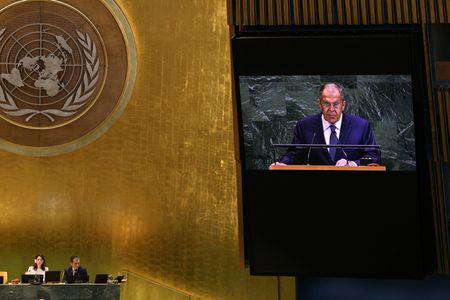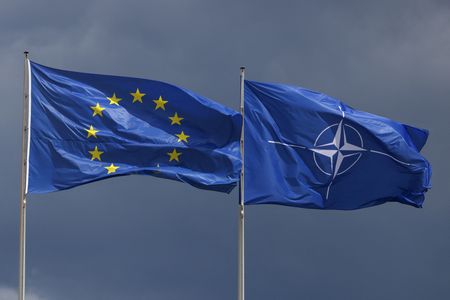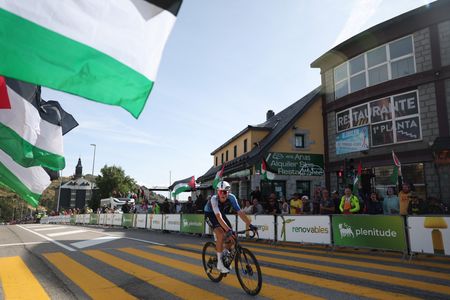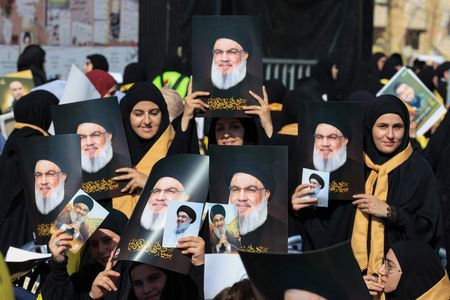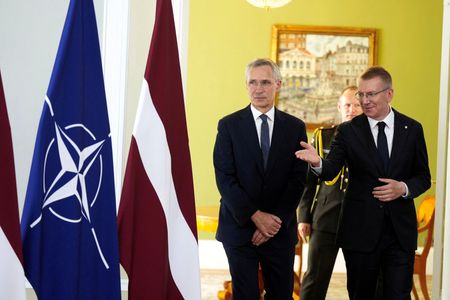By Dan Peleschuk
CHISINAU/BALTI, Moldova (Reuters) -Moldovans vote in a parliamentary election on Sunday that could have a major impact on the government’s quest to join the European Union, as a popular pro-Russian group seeks to steer the small nation away from closer ties with the bloc.
If neither side wins a majority in the 101-seat chamber, political horse trading is likely to follow, further unsettling one of Europe’s poorest countries, buffeted by war in neighbouring Ukraine and by suspected Russian meddling in politics and religion.
To a government aspiring to join the EU, control of parliament is vital for the long-term legislative efforts required.
But power in the former Soviet republic has swung for decades between pro-European and pro-Russian groups. About a third of the country – Transdniestria, east of the Dniestr river – is controlled by a breakaway pro-Russian administration, and hosts a small Russian garrison.
MOLDOVA’S GOVERNMENT WARNS OF RUSSIAN INTERFERENCE
President Maia Sandu casts the election as an existential test for the country of 2.4 million, which also has close cultural and linguistic ties with its western neighbour Romania, and says an extensive Russian campaign to sway the vote is a direct threat.
“If Russia gains control over Moldova, the consequences will be immediate and dangerous for our country and for the entire region,” Sandu said in an address last Monday.
Polls indicate that her Party of Action and Solidarity (PAS) could struggle to keep its majority.
Opposition forces like the pro-Russian Patriotic Bloc have tapped into voter unease over economic turmoil and the slow pace of reforms, grievances worsened by what officials say has been widespread disinformation.
In recent weeks, authorities have launched hundreds of raids targeting illegal party financing and allegedly Russian-backed networks aimed at stirring unrest over the vote.
On Friday, the Election Commission barred Heart of Moldova, part of the Patriotic Bloc, from the election while it is investigated for illicit funding.
Moscow has denied meddling and says the PAS-controlled government is spreading anti-Russian hysteria to win votes.
Sandu and PAS have cast European integration as key to Moldova’s future and escaping the influence of Moscow, its Soviet-era ruler.
But many voters appear more focused on domestic issues, wary of what closer ties with the EU might mean for Moldova’s heavily agricultural economy. Regional income disparities have added to the uncertainty.
SOME MOLDOVANS WARY OF ALIGNING WITH EU
“We’re a poor country,” said Liudmila Bielova, a 76-year-old poet from the northern city of Balti. “What will the European Union gain from us?”
She said she would most likely vote for the nominally pro-European Alternative bloc.
If it loses its majority, PAS will be forced to seek coalition partners among opponents like the centre-left Alternative bloc or the populist Our Party, if they pass the threshold to enter parliament.
Iulian Cazacu, a 26-year-old factory worker in Balti, said he would probably not vote after being disappointed by the outcome of two previous elections.
“There have been various leaders, and not a single normal, adequate change that would allow me to say, ‘Look, life in the country has become good’.”
Recent polls point to a tight race. Earlier in September, one poll showed PAS had slipped into second place for the first time with 34.7% backing, behind 36% for the Patriotic Bloc, including Socialists and Communists.
But the large diaspora could have a decisive impact; voters abroad are not reflected in polling data but usually tend to back pro-European parties.
(Additional reporting by Alexandru Fedas in Balti; Editing by Mike Collett-White and Kevin Liffey)

